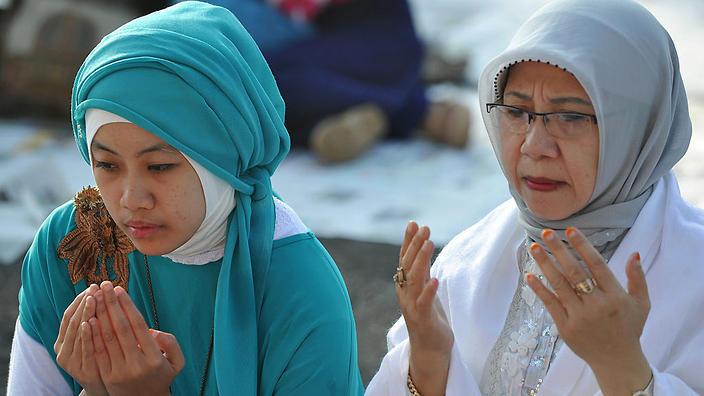Gender inequality is one of the most serious issues of Indonesia, but the government’s rhetorical support and goals toward human rights and gender equality are yet to translate into concrete policy initiatives to address Indonesia’s serious inequality issue.
At 49.7 percent, Indonesia’s women comprise almost half of the country’s population. The majority of them (66.2 percent) belongs to the productive group of 15-64 years old. With almost as many women as men in the country, one would think that Indonesian women would have the same role as men as contributors and help drive the economic progress.
Indonesia’s rapid economic development has given the country pride of place as the largest economy in the Association of Southeast Asian Nations (ASEAN) and the 16th largest GDP in the world, but it is questionable whether this has also benefited the population, especially the welfare of women.
Women’s Life in Indonesia
While the gender gap in education has narrowed, gender inequality still persists across the board, from health to employment. The gap is much worse when it comes to women’s involvement in legislative decision-making.
The inequality can be considered as very severe, as many women are still caught in the stigma: their opinions are limited and left unheard, and their souls remain confined by the culture that does not liberate and appreciate the position of women.
It is reported that 75 percent of women in Indonesia have faced physical and sexual violence. The first national survey by the government concerning violence against women demonstrated that 33 percent of women aged between 15 and 64 – around 26 million – claimed that they had experienced abuse.
The country ranked 88th out of 144 countries in the World Economic Forum’s 2016 Gender Gap Index after scoring poorly on economic participation, political empowerment, and education. Even though the economy has improved in the last ten years, critics say that traditional social perceptions and attitudes persist, and that women are frequently subject to scrutiny about their behavior.
Indonesia’s national commission on violence against women has recorded an increase in gender-based violence, with 348,446 reported cases in 2017, a 25 percent increase from 2016. It is also found that these women most frequently encounter abuse behind closed doors, in the form of domestic and dating acts of violence, accounting for 71 percent of the cases. The cases that took place in private settings include constituted physical abuse, as well as sexual, psychological, and economic abuse. Meanwhile, out of 26 percent of cases in a public setting, the majority occurred in schools, workplaces, and neighborhoods, mostly in the form of molestation and rape.
Child Marriage, Education, and Employment
It is reported that young girls are stripped of their rights in marriage decisions. Child marriages are still prevalent in Indonesia, despite efforts by the government and other entities to decrease the number. In fact, 11 percent of women were first married at the age of younger than 15. Marriage at such a young age disrupts women’s education and hinders their ability to get a better job if they later decide to enter the employment market.
Marriage does not improve their life. The Indonesian society, according to tradition, still firmly believes that men are sole breadwinners in the households. The deeply rooted patriarchal culture makes most Indonesian women stay at home or work informally. There are approximately 52.6 million households in the country, and men lead 84 percent of them. The majority of women turn to motherhood.
Women’s Health Welfare
With Indonesia’s rapid economical development, it would be expected that there would be an improvement in women’s health welfare. However, it is very concerning that the maternal mortality ratio in Indonesia is one of the highest in the world. In 2017, 306 out of 100,000 women died in child birth. This amount is three times higher than the target of 102 per 100,000 births set by the United Nations.
It is suspected that these excessive deaths are caused by incorrect reproductive behavior, including the number of births and being too young or too old. Unequal access to health services by Indonesian women is also a reason, especially for those living in the deepest, remote, and outermost areas.
In addition to this, another common but rarely mentioned cause of the high MMR is that pregnant women often have no say about what they want, including making the decision about the delivery process. The place of child’s birth, whether it happens at home or at a hospital, is often decided by the husband and the larger family. Even when some women are in critical condition, their family can forbid a referral to adequate medical facilities and choose to deliver the baby at home with the help of so-called witch doctors. These witch doctors are not medically qualified. Nevertheless, they are asked to assist in childbirth because they are believed to have certain “knowledge.”
Society’s mystical beliefs, especially in rural areas, plus the absence of appreciation towards women’s opinions and decisions regarding their bodies and their health characterize a serious problem. It is not only men who make this happen but also the family. Even conservative parents of young girls allow these violations of women’s right to keep happening.
Until now, no country in the world has succeeded in eliminating gender inequality completely. Nevertheless, the hallmark of a developing country is its ability to continually change and improve. Indonesia is no exception. Despite Indonesia’s evolving economic status, its situation with inequality remains one of the worst.
All layers of society in Indonesia must be well aware that the country will not be truly prosperous if inclusiveness is not the subject of change. There is a need to ensure that prosperity is felt by all groups of society, not just certain groups. Firm action is required to narrow the gap. It should start with changing the dogma about women and providing them with opportunities to move forward with the help of education, care for their rights and needs, and encouragement to actively participate in nation-building.
If the potential of Indonesian women could be boosted then these “new women” would become the driving force of change. They would certainly become the drivers of development in the country on a scale that might well surpass expectations.
Disclaimer: The views and opinions expressed here are those of the author and do not necessarily reflect the editorial position of The Globe Post.Indonesian Migrant Workers Fight Against Inhumane Treatment Abroad





















